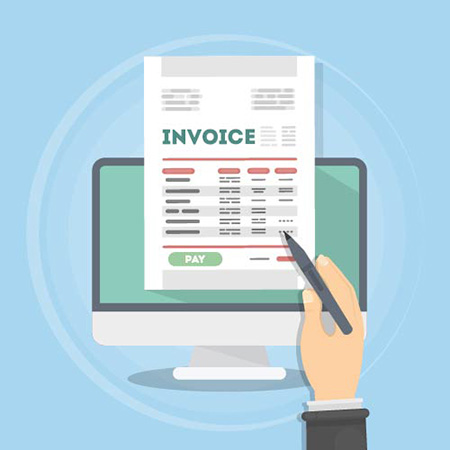Tax guide for Christmas gifts

Non-cash Christmas gifts cost less than £50 an item can be considered as ‘trivial benefits’.
As the calendar year comes to an end and Christmas approaches, many small business owners in the festive spirit enjoy giving a token of appreciation to the team members. But before you go and splash out, here are the tax rules you need to be aware of.
- Cash or vouchers which can be converted to cash are not considered as trivial benefits. They are subject to tax and National Insurance.
- Christmas gifts that are less than £50 per head (inclusive of VAT), not considered as a reward for their work or performance, and not stated in the terms of their contract, can be considered as trivial benefits. In this case, they are exempted from tax and National Insurance.
Christmas gift examples
Some thoughtful Christmas gifts that are below the £50 mark and can be considered as trivial benefits include:
- Something traditional: a bottle of wine or a box of chocolate
- Something more personalised: a scarf, a pair of gloves or a personalised mug
- Something popular like small electrical items, anything from portable power banks for phones to adapters.
What about Christmas bonuses?
HMRC is clear on Christmas bonuses – any cash you give to employees as a Christmas bonus means earnings. This means you have to add the value of the bonus to your employee’s other earnings, pay PAYE tax and also National Insurance through payroll.
What about gifts from a third-party?
It is possible for your employees to receive gifts from a third party. For example, you run a bakery and your employees may receive a gift from a flour manufacturer. The gift can be cash, vouchers, cheques or items. What you have to report to HMRC depends on what kind of third-party reward your employee receives and whether you are involved in arranging the reward.
The rule of thumb is that if the cash or vouchers are involved, the third-party must deduct PAYE from the reward and you must deduct National Insurance on the combined value of the reward and the PAYE tax paid on it by the third party.
For non-cash goods, the third-party must account for the tax due on the reward and pay tax and National Insurance. However, if you are involved in arranging the reward, the third party will pay for the tax due and you are responsible for the National Insurance.
As this can get complicated quickly, the best approach is to talk to your tax accountant.
TaxAgility can handle your taxes
At TaxAgility, our small business accountants can provide tax advice concerning Christmas gifts and trivial benefits to all small business owners in London, Richmond and Putney. You can count on us to provide honest tax advice pertaining to:
- Corporate tax
- VAT
- Employers’ PAYE
- National Insurance
- Business rates
- Income tax (for directors and shareholders)
Give us a call today on 020 8108 0090 or get in touch with us via our contact page to arrange a free, no obligation meeting.
If you enjoyed this article, you might also be interested in:
- Tax rules for staff parties and annual events
- Accounting tips for small business
- Small business: managing rising costs
This post is intended to provide information of general interest about current business issues. It should not replace professional advice tailored to your specific circumstances.
Tax rules for staff parties and annual events

Beware of the £150 per head exemption before organising your office party.
The idea to get your team members away from work and their daily routines for a social function is sound and meaningful. Rightly so, HMRC recognises the importance of such social event and allows tax exemption to small business owners who look to reward their employees with a staff party or a social event.
Important tax rules on staff parties and annual events
HMRC is stringent when it comes to the extra perks you provide to your staff and the perks are subject to PAYE tax and National Insurance.
But once a year, HMRC allows you to spend £150 per employee which is an exemption, meaning you can claim them as a business expense. To qualify, the event must:
- Occur annually. It can be a Christmas party or a summer event.
- Cost less than £150 per employee. This cost includes VAT and other related expenses such as the event itself and transport.
- Available to all employees.
- Available to their partners, meaning their partners are also subject to the £150 per head limit.
- Applicable to shareholders who are also directors or employees.
What happens if my event costs average more than £150 per person?
If your annual event exceeds the £150 tax exemption per person, you cannot claim the first £150. Instead, you must report the whole amount to HMRC and pay National Insurance on the full cost of the event accordingly. In this instance, it is best to get help from your accountant as you will also need to complete form P11D for each employee.
Can I host more than one annual event?
Yes. Employers can host multiple annual events but must ensure that the combined cost of the events is no more than £150 per employee for the year. However, to make it easier, most business owners choose to use their tax exemption budget during a single occasion.
Let TaxAgility manage your taxes
Tax is probably not the favourite subject among many small business owners. In the UK, tax is a complicated subject and how much tax your business has to pay depends on its structure, the VAT option it chooses, and how much money it makes. We understand that not all small business owners can keep abreast of the latest tax changes, which is why our accountants for small business owners are here to assist.
When it comes to taxes, you can count on us to provide services pertaining to:
- Corporate tax
- VAT
- Employers’ PAYE
- National Insurance
- Business rates
- Income tax (for directors and shareholders)
Whatever you need, we are committed to making your business a success - contact us today on 020 8108 0090 or get in touch with us via our contact page to arrange a free, no obligation meeting.
If you enjoyed this article, you may also be interested in:
- Accounting tips for small business
- Small business: managing rising costs
- Five ways to improve your company’s cash flow
This post is intended to provide information of general interest about current business issues. It should not replace professional advice tailored to your specific circumstances.
Small Business: Reducing the risks associated with temp staff

Are your temporary employees fraudsters in disguise? In this article, we help you to understand and reduce the risks of temporary hires.
Whether it is hiring more baristas, cashiers, or security personal, SMEs often require extra pairs of hands at certain times of the year, such as during the summer months and during the festive season in November and December.
The four weeks leading to Christmas are particularly intense for retailers and eCommerce site owners. Constant streams of sale hunters and shoppers fuel sales and get the cash register ringing, to cope with increased demand, business owners often turn to temporary or seasonal employees. However, doing so brings potential risks that small businesses must be aware of.
What are the risks of hiring temporary staff?
Poor loyalty and performance – Often tied to a fixed-date employment contract, temps may lack the loyalty and dedication of permanent employees. With a leave date in a few weeks’ time, temps are less likely to take pride in their work and may perform poorly. As a result, they can become a liability.
Undertrained staff – Temps require training in order to fulfil their job function. Incomplete or poor training leaves temps unable to meet the required standards and therefore, reflects poorly on your company.
Illegal workers – Never rush the hiring process. With the influx of illegal immigrants in the news, businesses in London must ensure that they only employ those with a right to work in the UK to prevent company losses and bad press. Businesses can be charged up to £20,000 per illegal worker under their employment, which can be devastating and hurt your bottom line.
Internal fraud – Small business owners must understand the danger of internal fraud. Fraudsters can pose as temporary employees in order to steal your inventory or to access business data for their own financial gain.
Those seeking to infiltrate businesses in the disguise of a temporary employee pose a serious risk to all businesses looking to hire. According to Action Fraud, internal fraud cost UK businesses £88 million between 2017-18, double the figure for the year before.
Why are small businesses particularly vulnerable to internal fraud?
Often lacking resolute accounting controls, effective anti-fraud measures, suitable technology and enough staff to split financial duties evenly, SMEs present a natural target for fraudsters to make a quick buck by deceiving the owners and employees. Their tricks include:
- Tricking the company into paying them a large sum of money by using fake invoices or a fraudulent identity.
- Stealing stocks. They may after high-value items or items that are small and easy to conceal.
- Stealing sensitive data and sell them on the black market.
- Taking control of the system remotely and ask for ransom.
When it comes to accounting fraud, business owners also need to keep a lookout for:
- Billing fraud – creating false payments to oneself.
- Cash theft – pocketing the money instead of registering cash transactions.
- Expense reimbursement fraud – claiming embellished or false expenses.
- Bribes and kickbacks – paying others for company information or favours.
How to reduce the risks of temporary hires
As a small business owner, you can take steps to reduce the risk of hiring temporary staff and keep your business safe.
1. Pre-employment background screening
Screening potential employees reduces the chance of hiring criminals or fraudsters. Don’t cut corners – it’s crucial that employers screen temps as if they are applying for a full-time position. We recommend you:
- Run a DBS check to check for criminal records. Go to the gov.uk website for more information on these.
- Obtain references from previous employment.
- Interview each candidate thoroughly.
- Use a DISC (Dominance, Influence, Steadiness and Compliance) personality test which can help to reveal typical behaviour.
2. Hire from current employee referrals
Hiring temps recommended by current employees can minimise the risk of hiring fraudsters or incompetent workers. However, this can only work if your existing employees are trustworthy. Another option is to re-hire former reliable temps.
3. Provide complete training
Training temps well reduces the risk of incompetent workers in your business and enables them to perform as required, helping your business survive the seasonal demand.
4. Withhold access to important company information
Restrict access to data and stocks. Temporary employees should not be given access to the same sensitive business data as senior executives, only what they need to fulfil their job function.
5. Use Anti-Fraud measures
Small business owners must proactively look to prevent fraud and have a series of anti-fraud measures in place including:
- Employee training on how to stop fraud.
- A company handbook on fraud.
- A warning against fraud in temporary employment contracts, containing details of company expectations, as well as details of ‘fraud’, ‘theft’ and ‘bribery’ and the consequences of violating your terms.
- Reward whistleblowers who keep a lookout and report any internal fraud.
TaxAgility is here to help small businesses in London
Small businesses in London really feel the pressure during busy periods when business transactions are higher than normal. While our small business accountants may not be able to recruit temp staff for you, we can certainly relieve you from bookkeeping and accounting duties, giving you more time to focus on your business.
Give us a call on 020 8108 0090 if you need a helping hand on:
If you liked this article, you might also like:
This post is intended to provide information of general interest about current business issues. It should not replace professional advice tailored to your specific circumstances.
Small Business Saturday (7 December)

Supporting Small Business Saturday on 7 December 2019
With empty shops stand at a record high on our high street and in our neighbourhood, supporting the Small Business Saturday campaign has never been more critical. This year, we are doing our part to persuade small businesses across the UK to sign up for Small Business Saturday taking place on 7 December 2019. We are also encouraging residents to spend locally in independent shops.
Calling small business owners
If you run a small business, visit the smallbusinesssaturdayuk.com website to register and get listed on the Small Business Finder free of charge. You can also download the logo and marketing pack. If you have a plan for the day, share it with the organiser and they will announce it on their social media.
Calling shoppers
Use the Small Business Finder to find local shops near you and post photos of yourself supporting your local shops with #SmallBizSatUk. The smallbusinesssaturdayuk.com website also has a cook book which you can download.
Let us make a difference to support our local shops.
Limited Company or Umbrella Company – which is right for you?

If you’re looking for a career change and have decided to work for yourself, TaxAgility’s accountants can advise you on the best contracting option for your business.
Before starting out as a freelancer or contractor, it’s worth taking some time to decide if you should set-up a limited company or register with an umbrella company.
Deciding which route to take often comes down to your requirements, the level of control you want, your long-term business strategy and the type of operations that you'll be undertaking.
At TaxAgility, we believe that there is no right or wrong decision when it comes to choosing between a limited and an umbrella company. If in doubt, our expert accountants for contractors can help you understand what your business requires to determine the best course of action for you. With years of experience in helping contractors across London, we can provide you with solid guidance and advice so that you can make an informed decision.
Contracting through a limited company
A limited company is a type of business whose legal standing is independent of its shareholders and directors. Setting up a limited liability company can take only a few hours. It involves choosing a name for your company, submitting the required documentation to Companies House, and registering with them once the documents have been approved.
Setting up your own limited company means that you are in control, and your personal finances will be separate from your company’s finances. In the event that something goes wrong with your company, your personal finances will not likely to be affected. However, it is also important to understand that setting up a limited company means that you will be in charge of managing your administrative and legal obligations for the company.
Is a limited company the right option for you?
If you are planning on contracting for a long period of time, a limited company could be the most tax-efficient way of working – as it allows you to claim various expenses and pay yourself a combination of salary and dividends (a sum of money that a limited company pays out to someone who owns shares in the company, i.e. a shareholder) to benefit from the tax free allowances available to each. You can also make tax-free pension contributions through the company and leave funds within the business to grow and expand.
On the other hand, a limited company is costly to set-up (more so than registering with an umbrella company). Also, there is some administration involved in running a limited company even with an accountant for contractors supporting you. For example, you will need to keep track of your income and expenses, such as receipts and invoices, as the information is required for the submission of your year-end accounts and tax returns.
It is worth noting that if you fall within the IR35 legislation, the tax benefits of a limited company will completely disappear. IR35 is a tax legislation that is designed to combat tax avoidance by workers supplying their services to clients via an intermediary, such as a limited company, but who would be an employee if the intermediary were not used. By falling on the wrong side of IR35 due to your working arrangements, you can end up paying tax and National Insurance at the same rate as a permanent employee. To understand more about the IR35 legislation, you can check out this post, What does IR35 legislation mean?
Contracting under an umbrella company
Contracting under an umbrella company means that you are considered an employee of the umbrella company. You will need to submit timesheets to the umbrella company which will then invoice the end client or agency for the work that you have completed. In terms of salary, you will be paid as a PAYE (Pay As You Earn) employee minus the umbrella fee, which the company will charge each time you receive a payment. Contractors who prefer no administrative duties generally favour this type of contracting route.
Is an umbrella company the right option for you?
An umbrella company frees you of all the administrative and financial responsibilities that come with being a contractor, meaning that you don’t have to manage or pay your taxes or National Insurance, allowing you to focus on your work.
You will work under a form of employment contract, which still guarantees you the benefits offered to permanent employees, such as holidays, sick leave, maternity and paternity pay.
However, the biggest disadvantage of working with an umbrella company is that they charge a substantial sum of administrative fee, as they take care of your timesheets, billings, PAYE and National Insurance. As such, this option is only suitable for contractors who are new to contracting or work on short-term contracts.
TaxAgility accountants for contractors
Before taking the leap into contracting, contact one of TaxAgility’s specialist accountants for contractors and discuss the options that are best for you given your individual circumstances.
It is also worth checking out these pages written specifically for contractors:
If you choose to set-up a limited company, we will work with you to ensure that you understand what is required of you in terms of your financial and tax obligations, so that we can try to maximise efficiency and minimise your tax obligation where possible. We can also assist you with registering with Companies House, and subsequently, assist you in bookkeeping and accounts so you can concentrate on your business.
If you are already a contractor and want to increase your take-home pay, need assistance with adhering to regulations (such as IR35), or help with your ongoing accounts and bookkeeping, contact us today on 020 8108 0090 or get in touch via our contact us page to arrange a complimentary, no obligation meeting.
If you found this interesting, you might also enjoy:
- How to lighten your workload as a contractor
- How contractors should invoice for expenses
- Business expenses you can claim as an IT contractor
This post is intended to provide information of general interest about current business/ accounting issues. It should not replace professional advice tailored to your specific circumstances.
Your guide to bullying and harassment in the workplace

Next week, November 11 to 15, is the anti-bullying week, so let’s use this opportunity to promote a safe workplace. The theme for this year is “Change starts with us”.
Bullying and harassment both refer to ‘unwanted behaviour that makes someone feel intimidated, degraded, humiliated or offended’, according to Acas (The Advisory, Conciliation and Arbitration Service). It can be obvious or subtle, persistent or isolated, between individuals or groups. It can also take many forms:
- Face-to-face
- By letter
- By email
- By phone
However, business owners must understand that there is a slight legal difference between bullying and harassment.
What is bullying?
Acas defines bullying as offensive, intimidating, malicious or insulting behaviour, an abuse or misuse of power through means that undermine, humiliate, denigrate or injure the recipient. In any business, all employees are responsible for ensuring that their behaviour does not fall into this category.
Bullying itself is not against the law, but nevertheless must be reported. It is said that one in four employees have experienced bullying or been made to feel out of place at work. These negative experiences at work often lead to stress and pressure. Accordingly, it is crucial that small business owners understand the severity of the problem and have a clear and rigorous policy in place to combat bullying and harassment in the workplace. To promote a bully-free workplace, look for the following signs of bullying:
- Someone has spread malicious rumours about certain team members.
- Someone has been treated unfairly.
- Someone continuously picks on or regularly undermines another person.
- Someone has denied other’s training or promotion opportunities.
What is harassment?
Harassment violates the Equality Act 2010, which defines it as ‘Unwanted conduct related to a relevant protected characteristic, which has the purpose or effect of violating an individual’s dignity or creating an intimidating, hostile, degrading, humiliating or offensive environment for that individual.’
Harassment is extremely personal. HMRC characterises harassment as behaviour relating to the following:
- Age
- Sex
- Disability
- Gender reassignment
- Marriage and civil partnership
- Pregnancy and maternity
- Race
- Religion or belief
- Sexual orientation
Every business owner must be aware that because harassment violates the Equality Act 2010 and Health and Safety at Work Act 1974, it requires urgent resolution before it is being escalated to legal action.
Why small businesses may struggle to deal with bullying and harassment
Smaller businesses often face greater difficulty in successfully dealing with bullying and harassment claims than larger corporations for the following reasons:
- A lack of HR
Many small businesses lack the resources to employ a full-time HR department. Consequently, cases may go unreported as recipients of bullying and harassment may feel isolated, and perhaps afraid to speak to their managers.
- A lack of money
Should the case of harassment go to court, majority of small businesses cannot afford to pay the fees attached to legal cases. The troubles may lead them to shut down the company instead.
- Unclear policy on bullying and harassment
Small businesses are less likely to have a clear, formal policy on bullying and harassment than larger businesses.
What small business owners can do to promote a safe workplace
As a small business owner, you know first-hand that workplace bullying and harassment can lead to low morale and increased absenteeism, which in turn will lower productivity and hurt your bottom line.
To establish a high-performing team where everyone can contribute to business growth, there is no room for anyone to create hostility at work. For small business owners looking to foster a safe and effective workplace, here are a few things you can consider:
- Have a clear statement that bullying and harassment will not be tolerated and deserve to be treated as disciplinary offences.
- Provide examples of unacceptable behaviour.
- Encourage your employees to report any incidences to management right away.
If you are unsure of how to respond to unwanted behaviour, please follow the guideline above or call the Acas helpline for advice:
Telephone: 0300 123 1100
Textphone: 18001 0300 123 1100
Monday to Friday, 8am to 6pm.
How to lighten your workload as a contractor

Here at TaxAgility, we believe that managing your financial affairs can be an extra hassle that contractors simply don’t need, which is why our specialist contractor accountants are on hand to lighten your workload and give you that work-life balance you deserve.
What is a contractor?
Contractors are self-employed individuals who have escaped ‘traditional’ company-dictated working hours by setting up a business for themselves. Contractors offer a specialised service to a wide range of clients. Some examples include writers, carpenters, builders and IT specialists.
Why does a contractor need an accountant?
Running a business means contractors need to market themselves, prepare quotations, fulfil contractual obligations, invoice clients, and also taking care of the administrative function and tax obligation. They are busy individuals who constantly juggling the stresses of multiple roles.
Concerningly, 44% of contractors who took part in a YouGov survey revealed they had missed a personal occasion due to work, while a staggering 10% said they missed their own birthday party due to their workload. A further 11% said that they had missed anniversaries.
Accounts and tax are areas that most contractors do not possess enough knowledge to complete the financial tasks required accurately and efficiently, and this is where an accountant for contractors comes in.
How can accountants help contractors?
Allowing accountants that specialise in helping contractors handle your finances will enable you to focus on growing your contracting business and put your mind at ease, with the assurance that a team of specialists are on the job.
At TaxAgility, our dedicated team of contractor accountants is perfectly placed to lighten the weight of financial administration on contractor’s shoulders. The areas we can assist include:
1. Find a company structure that is best for you
As a contractor, you can choose to set up a limited company or work under an umbrella company. Most contractors prefer to run their own limited company because it is tax-efficient. In this case, we will guide you through the necessary legal requirements and help you to understand your legal and financial responsibilities as a shareholder, director and employee.
2. Manage accounts and bookkeeping requirements
Assisting with bookkeeping, cash-flow forecasts, preparing your monthly management accounts, filing annual statutory, are just some of the tasks we can manage on behalf of you.
3. Contractor tax services
VAT, NI, PAYE, Self-Assessment tax returns, and using dividends to make up a portion of your income are tasks that we can help you with. If you would like to know more about dividends, check out this post "Understanding dividends".
4. IR35 support
IR35 is a mind-bogglingly complex issue that troubles many contractors as there is no definitive guideline that stipulates the conditions of a 'breach'. This means you can read as much about IR35 and still do not know if you are inside or outside the scope of IR35. The best approach is to contact an accountant for contractors like us and discuss your situations in detail.
5. Answer any questions you have
It is natural to ask questions when you run a contractor business. Questions such as should you (and can you) register for flat-rate VAT? What business expenses you can claim as an IT contractor? Can you put a family member on the payroll? - all of them are valid questions deserve honest answers from our accountants.
6. Keep you out of legal trouble
There are many tax deadlines associating with setting yourself up as a contractor and running a business; we can help you to submit all the necessary documents before the deadlines to avoid fines. Moreover, while we strongly believe in helping contractors being tax-efficient, we do not practice creative accounting that will raise questions from HMRC.
7. Peace of mind
With us working alongside you, you do not have to spend needless hours managing headache-inducing financial tasks. This means you can focus on matters that are important to you, like amplifying your business visibility and driving the success of your contracting business.
TaxAgility is here for contractors
With three offices across London - we are in Putney, Richmond and Central London, our team of accountants specialise in contractors can manage your accounts and financial tasks for you. To find out how we can help, call us today on 020 8108 0090 or get in touch with us via our contact page to arrange a complimentary, no-obligation meeting.
If you found this interesting, you may also enjoy:
- IT Contractor Tax: what do I have to pay?
- Tax planning tips for self-employed contractors
- Moving from permanent employee to full-time contractor
This post is intended to provide information of general interest about current business issues. It should not replace professional advice tailored to your specific circumstances.
How contractors should invoice for expenses

Knowing how to invoice for expenses when you first start out as a contractor, regardless of your profession, is crucial to ensure that you keep up a professional appearance and can breeze through the first few months of your contracting career.
As a contractor, you are likely to incur a few expenses when providing your services to clients. For example, you may need to travel and visit premises in another town (an expense which you incur), or you may need to purchase a piece of equipment on behalf of your client (a disbursement which you will invoice). To help you navigate the expense and disbursement process, our accountants for contractors in London at TaxAgility share three common methods that you are likely to encounter when invoices your clients for your expenses.
Adding VAT
Regarded as the simplest invoicing method, adding VAT involves charging VAT on any expenses you have incurred while working or carrying out your services for your clients, such as hotel stays, public transport expenses and mileage. In this case, you add the VAT regardless of whether or not you were charged VAT on these items in the first place.
For example, you performed £2,000 worth of work for your client and you incurred £40.00 in petrol cost due to driving out to an in-person meeting with your client (a cost they had agreed to reimburse), you would invoice them £2,448 and the breakdown is as follows:
- £2,000 for the work
- £40 for petrol cost
- £408 (20% VAT on £2,040)
Splitting VAT
In the event that your clients do not like the above method as they are paying VAT on the petrol cost twice, then you will need to remove any VAT you paid on expenses you claim back from them, then applying VAT to your final, gross invoice.
Let’s say you performed £2,000 worth of work for your client, and you also paid £1,200 (with VAT) for a training course which your client suggested you attend and promised to reimburse you for. In other words, the training cost is actually £1,000 + VAT £200.
In this case, you will invoice your client £3,600 and the breakdown is as follows:
- £3000 (£2,000 for the work + £1,000 for the training cost)
- £600 (20% VAT on £3,000)
Disbursement
Disbursement payments occur when you purchase something on behalf of your client and pass that cost over to them in your invoice. In this instance, you do not charge VAT on the items and you cannot claim back any VAT.
As explained by HMRC, there are various rules surrounding disbursement including:
- You paid the supplier on your client’s behalf and acted as the agent of your client.
- Your client received, used or had the benefit of the goods or services you paid for on their behalf.
- It was your client’s responsibility to pay for the goods or services.
- You had permission from your client to make the payment for the said goods or services.
- Your client knew that you were not the supplier of the goods or services.
- You show the costs separately on your invoice.
- You pass on the exact amount of each cost to your customer when you invoice them.
- The goods and services you paid for are in addition to the cost of your own services.
Here is an example: you performed £2,000 worth of work for your client and you incur £40 in petrol costs which the client would pay. To do the job, your client also asked you to purchase a piece of electronic (a Geiger counter worth £200) which they would need in the project. You will invoice £2,648 and the breakdown is as follows:
- £2,040 (£2,000 for the work done + £40 petrol expenses)
- £408 (VAT on £2,040)
- £200 (Geiger counter disbursement)
How can TaxAgility help contractors?
At TaxAgility, we understand that contractors are constantly juggling different tasks at once, which is why we want to step in and help. With the assistance of our dedicated accounting and tax services for contractors, you can focus on building your business while we manage your financial and tax affairs.
Our contractor tax and accounts services include:
- Setting up a limited company to help you get started
- On-going accounts and bookkeeping management for contractors
- IR35 support for contractors
- Construction Industry Scheme (CIS) support
- Corporate tax advice
- Self-Assessment tax returns
- Personal investments
If you would like to arrange a one-to-one meeting to discuss any tax or invoicing queries you might have, we offer a no-obligation, free consultation. Contact us today on 020 8108 0090 or get in touch with us via our Contact Page.
If you found this useful, take a look at:
- Understanding dividends
- IT contractor tax: What do I have to pay?
- Business expenses you can claim as an IT contractor
This post is intended to provide information of general interest about current business issues. It should not replace professional advice tailored to your specific circumstances.
Everything you need to know about crowdfunding

Crowdfunding platforms connect businesses and investors, allowing ideas to develop and companies to flourish, but is it for you? Read on to find out.
The internet has changed many of the ways we do business and live our daily lives and unsurprisingly, it has also opened up new avenues in which we acquire fund or invest in things that interest us.
In the UK, crowdfunding is undoubtedly popular with hundreds of millions raised within just a few years. Businesses have used crowdfunding to launch new products and expand, while individual investors can now support ideas and hope that they can make more than what they have put in. It isn’t just for business too – artists, writers, filmmakers, as well as those in need can also use crowdfunding sites to raise fund.
In this article, we aim to discuss:
- What is crowdfunding?
- The four common types of crowdfunding
- The risks of crowdfunding
- Can investors get tax relief?
- EIS and SEIS
- Should you list your business on crowdfunding?
What is crowdfunding?
Crowdfunding refers to a method of raising finance by asking a large number of people each for a small amount of money. In most cases, crowdfunding takes place on an online platform where a business or an individual can create a campaign to raise funds.
If it is a business project, the company usually includes an overview of the business plan, details of the management, and the amount that they hope to raise. If you invest, you may get a reward (the finished product, for example) and/or some shares in the company. In some instances, you may also get your money back plus interest – this is also known as peer-to-peer lending. While there are investors who just want to support an idea (especially an innovative one), most investors do hope to make a good return on investment.
As crowdfunding allows anyone to present an idea to a large group of people, savvy business people also use the process to test out their ideas and gather insight.
Crowdfunding is also not restricted to new ideas or products – there are plenty of companies conducting a second or third round of funding to spur growth.
Then there is the humanitarian side – GoFundMe is the largest platform for this and it has helped organisers raise over US$5 billion to help someone in need.
The four common types of crowdfunding
1. Equity-based
In essence, you invest in a company and receive shares of the company in return. There are usually two types of shares on offer – with and without voting or pre-emption rights. If the company does well, your shares will increase in value and you make a good return when you sell them. However, if the company fails, you will lose your investment. Also, it must be said that the company involved may not issue shares directly to you, but to a nominee company (usually a company set-up by the platform).
2. Reward-based
A highly popular model, this will see you invest a small amount of money and receive a reward at a later stage. The size of the reward often corresponds to the amount contributed. For example, you may get an ‘e-hug’ for a £10 contribution or a finished product for a £200 contribution.
3. Donation-based
This model sees you donating money to a person, charity, community or cause without expecting any reward in return, except in knowing that your donation can help to make a difference.
4. Loan-based or peer-to-peer (P2P) lending
In this model, you lend a business some money and expect to receive the money back plus interest.
The risks of crowdfunding
- The target amount may not reach
Every project sets a target amount and if the project cannot attract enough investors before the deadline, then those who have already invested will get their money back, but the project will not be able to move forward. - The business may fail
Investment is inherently risky, more so when young companies are involved. It is said that 30% of new businesses fail in the first two years of operating, so there is a good chance that you may lose your money. - Investors may not be able to sell the shares
If the company remains unlisted, it is not easy to find another buyer to purchase the shares. - Dividends are unlikely
If the company becomes profitable, it may distribute the profits to its investors in the form of dividends. However, most companies listed on crowdfunding platforms are in the early stages and they tend not to make enough to pay dividends. - The platform may fail
In the UK, several notable platforms have gone bust, leaving both companies and investors frustrated. - Ideas may get stolen
As companies get much attention on crowdfunding sites, it is highly possible that others may take the opportunity to copy and improve upon the original ideas. - Learning curve
In most instances, companies involved do not issue shares directly to the investors but to a nominee company (usually a company set-up by the platform). Both companies and investors not familiar with this arrangement will need to educate themselves quickly.
Can investors get tax relief?
In the UK, the government has rolled out four types of schemes to help companies raise funds and they are:
- The Enterprise Investment Scheme (EIS)
- The Seed Enterprise Investment Scheme (SEIS)
- Social Investment Tax Relief (SITR)
- Venture Capital Trust (VCT)
Among them, the Enterprise Investment Scheme (EIS) and Seed Enterprise Investment Scheme (SEIS) are specially designed for small companies with a higher risk to raise fund. How it works is that investors who purchase new shares in these companies can claim tax relief. If you are interested in this, keep a lookout for companies listed on crowdfunding sites with the words EIS or SEIS-approved.
Enterprise Investment Scheme (EIS)
Under this scheme, you (the investor) make an investment that is locked for a minimum of three years to qualify for the benefit. The scheme allows you to claim up to 30% income tax relief on investments up to £1 million per tax year, and you do not have to pay Capital Gains Tax if you sell them after three years. Here is a simplified example:
- You invest £10,000 in a company and you can claim back £3,000 (30%) in income tax relief. You must submit the claim as part of your self-assessment tax return.
- After three years, if you sell your shares for £20,000, you do not have to pay Capital Gains Tax.
- In the event that the company goes bust, you can offset the losses against income.
EIS can get very complicated in practice, so it is best to call us up on 020 8108 0090 and discuss any questions you may have pertaining to EIS.
Seed Enterprise Investment Scheme (SEIS)
Similar to EIS, SEIS allows small businesses to raise fund easily by offering investors tax relief. But unlike EIS where qualified companies tend to be bigger (with less than £15 million in gross assets and less than 250 employees), SEIS is used solely by start-ups that are less than two years old, have less 25 employees and less than £200,000 in gross assets. The maximum amount a company can raise under SEIS is also limited to £150,000.
Under this scheme, the investment made is also locked for a minimum of three years. Here is a simplified example:
- You invest £1,000 in a company and you can claim back £500 (50%) in income tax relief. You must have received an SEIS3 form from the company which you have invested before you can claim tax relief through your self-assessment tax return.
- After three years, if you sell your shares for £2,000, you do not have to pay Capital Gains Tax.
- If the company goes bust, you will receive some loss relief (which is a certain percentage of your investment multiple by your tax rate).
SEIS can also become complicated quickly, so give us a call on 020 8108 0090 and let us understand your situation first before recommending how you should go about claiming your tax relief and/or loss relief.
Should you list your business on crowdfunding?
If you have tried raising fund from banks and angel investors but without much success, then it is worth getting your business listed on one of the crowdfunding sites. But before you do that, it is best to answer the obvious question – why did your application get rejected in the first place? The people who will back your business on a crowdfunding platform are investors – meaning they are more likely to part with their money if they can see a good return on investment. So perhaps it is wise to spend some time to improve your product or service and make it more appealing before you list your business. Also, rewrite your business case if necessary.
Having said that, you must consider carefully what you can offer to your investors realistically. Will it be equity-based or reward-based? Perhaps a combination of both? If it is equity-based, do you want to have two categories of shares (with and without voting or pre-emption rights)? Do you need a nominee company?
Most importantly, the temptation to offer generous perks for larger investments is ever-present, so how do you know that you have inadvertently over promised your investors? These hard questions deserve clear answers from independent small business accountants at TaxAgility, and one of our small business specialists will be delighted to help you run through some figures and answer any questions pertaining to share structure.
If you would like to know more about funding options, this article The complete guide to business funding makes a good read.
Get advice from TaxAgility
Though it has a fair share of risks, crowdfunding has connected many investors and companies. It has helped companies turn their ideas into realities and facilitate growth. It has also given individuals like you and I a chance to invest and receive tax relief.
If you are a company director who needs help with numbers before listing your business on a crowdfunding site, or if you are an investor wanting to understand how EIS and SEIS can work for you, call your local London accountants on 020 8108 0090 use our Online Enquiry Form.
If you enjoyed this, you might also like:
- Understanding dividends
- The complete guide to business funding
- Small business: 5 ways to get new customers
This post is intended to provide information of general interest about current business issues. It should not replace professional advice tailored to your specific circumstances.
Understanding dividends

When a company makes a profit, it pays dividends to its shareholders.
If you are a contractor or have recently started your own limited company, you have probably heard from other contractors or business owners about taking a low salary and using dividends to make up a portion of your income.
At TaxAgility, our small business accountants work with contractors and small business owners across London. As we are often asked about the advantages of taking dividends from a business’ profit, we aim to discuss dividends in this post.
What are dividends?
Dividends are money paid by a company to its shareholders after it has met its financial obligations (like paying business expenses and taxes). Another way to look at it is that when a company makes a profit, it usually retains a portion of its profit and distributes the rest to its shareholders in the form of dividends.
Why contractors and small business owners like dividends
The main benefits of dividends are:
- Unlike salary, dividends are not subject to National Insurance Contributions (NICs)
- The first £2,000 of dividends are not taxable
- Dividends have a lower tax rate than salaries
For tax year 2019/20, dividend tax rates are:
- 7.5% (up to £37,500)
- 32.5% (£37,501 - £150,000)
- 38.1% (over £150,000)
If you intend to declare dividends, you must hold a board meeting and minute it whenever you make a declaration. Then your accountant will prepare a dividend voucher for each company shareholder stating the net dividend paid.
Prior to the tax year 2016/17, the was something known as a notional 10% tax credit but HMRC has abolished this.
An example of dividend tax
In the tax year 2019/20, you receive a salary income of £8,600 and this is not subject to tax because the income is below the Personal Allowance threshold of £12,500. This also means you still have a balance of £3,900 left to use.
In the same tax year, you receive dividends worth £15,000 and out of this amount, you only need to pay a low 7.5% tax rate on £9,100. This is because:
- £3,900 of your £15,000 dividend income is tax-free since you have this balance from your Personal Allowance (£12,500 Personal Allowance minus £8,600 salary income)
- Another £2,000 of your £15,000 dividend income is also not taxed as you have a £2,000 Dividend Allowance
The upshot of it is you are only required to pay £682.50 tax on your £15,000 dividend income. This low rate is not achievable if you are drawing a salary. You must then declare this dividend income on your Self Assessment tax return in the ‘Dividends’ section.
IR35
If you are a contractor, chances are you already know how confusing IR35 can be. If you are considered a “disguised employee” under IR35, you will face severe tax implications. If IR35 is stressing you out, please set up an appointment with us so we can understand your situation better. Alternatively, our post “What is IR35? A brief guide to the IR35 legislation” may make a good read.
Professional advice on dividend distribution
To speak with a professional to discuss how to successfully distribute dividends to your shareholders and to maximise your take-home pay, contact one of our small business accountants in London today. You can call us on 020 8108 0090 or get in touch with us via our contact page to arrange a complimentary, no-obligation meeting.
If you liked this post, you might also enjoy:
- The complete guide to buying a small business
- The complete guide to business funding
- Small Business: 5 ways to get new customers
- Five ways to improve your company’s cash flow
This post is intended to provide information of general interest about current business/ accounting issues. It should not replace professional advice tailored to your specific circumstances.


